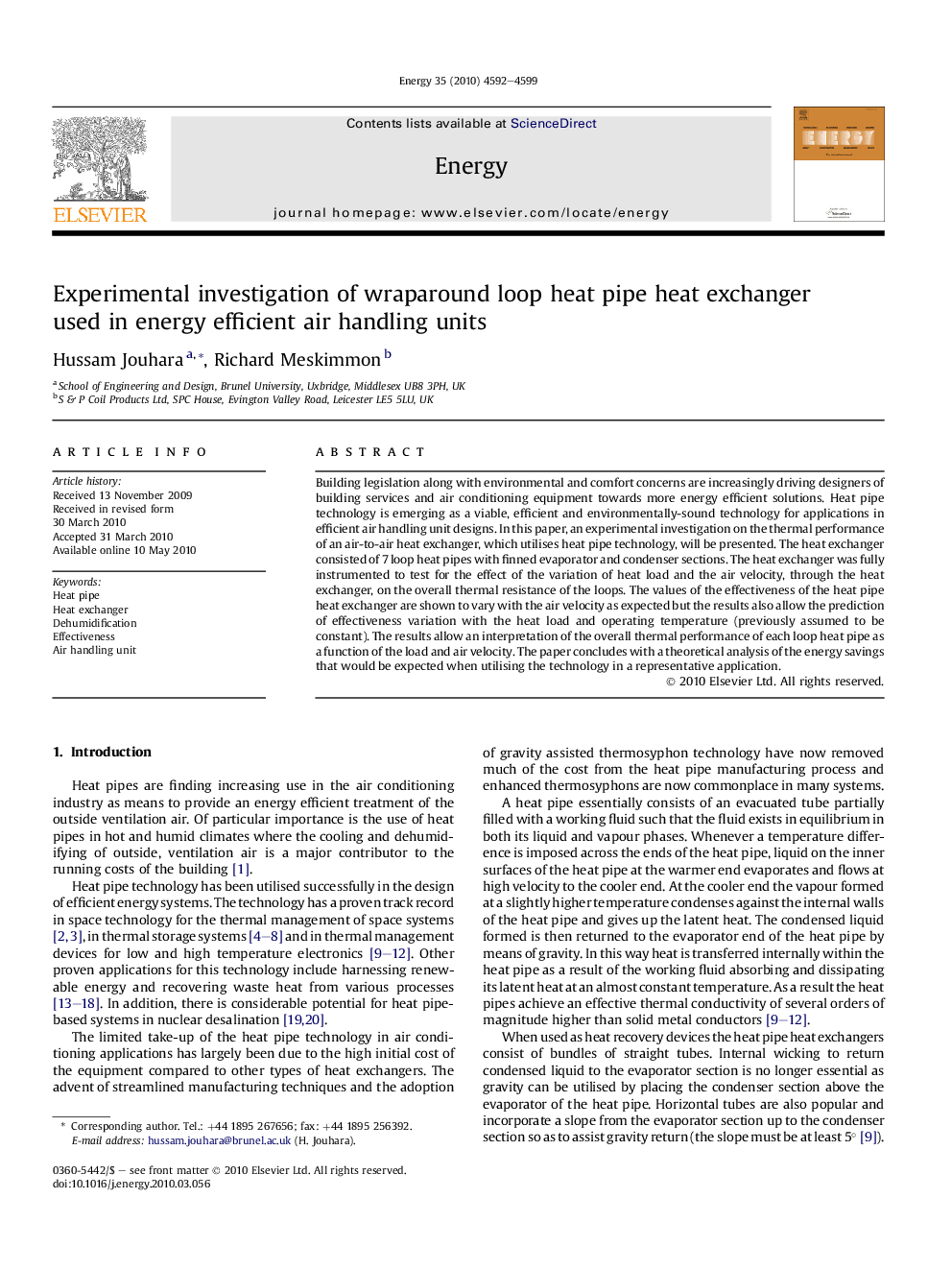| Article ID | Journal | Published Year | Pages | File Type |
|---|---|---|---|---|
| 10682745 | Energy | 2010 | 8 Pages |
Abstract
Building legislation along with environmental and comfort concerns are increasingly driving designers of building services and air conditioning equipment towards more energy efficient solutions. Heat pipe technology is emerging as a viable, efficient and environmentally-sound technology for applications in efficient air handling unit designs. In this paper, an experimental investigation on the thermal performance of an air-to-air heat exchanger, which utilises heat pipe technology, will be presented. The heat exchanger consisted of 7 loop heat pipes with finned evaporator and condenser sections. The heat exchanger was fully instrumented to test for the effect of the variation of heat load and the air velocity, through the heat exchanger, on the overall thermal resistance of the loops. The values of the effectiveness of the heat pipe heat exchanger are shown to vary with the air velocity as expected but the results also allow the prediction of effectiveness variation with the heat load and operating temperature (previously assumed to be constant). The results allow an interpretation of the overall thermal performance of each loop heat pipe as a function of the load and air velocity. The paper concludes with a theoretical analysis of the energy savings that would be expected when utilising the technology in a representative application.
Related Topics
Physical Sciences and Engineering
Energy
Energy (General)
Authors
Hussam Jouhara, Richard Meskimmon,
